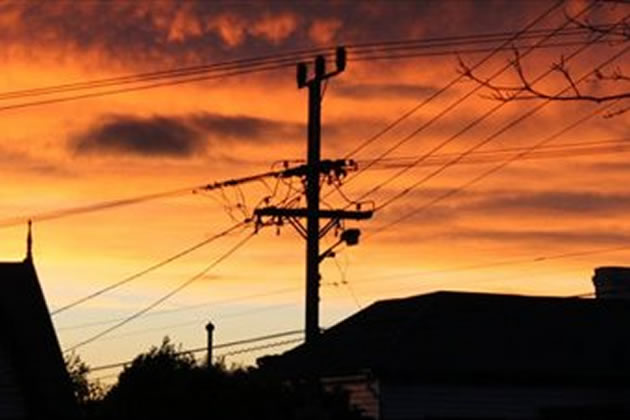Mini-grids can significantly boost Nigeria’s energy profile. But so far, the regulatory landscape has not been clear enough to attract the needed investments to develop mini-grid projects. The Nigerian Electricity Regulation Commission (NERC) has drafted the 2016 Mini Grid Regulation with the intention to attract investments into mini-grids without hampering the operational successes of the Distribution Companies. Does the proposed regulation work for investors? This article highlights the feedback from industry stakeholders until mid November 2016.
In mid 2016, the Nigerian Electricity Regulation Commission (NERC) came up with a draft Mini-Grid regulation. The regulation was specifically designed to accelerate electrification in areas of the country without any existing distribution grid (i.e. “unserved areas”) and areas with an existing but poorly electrified or non-functional distribution grid (i.e. “underserved areas”), especially but not limited to rural areas. Typically, mini-grids run independent of the national or the main electricity grid and may be powered either by fossil fuels or renewable energy sources such as solar and small scale hydro
Owing to its potential to boost Nigeria’s access-to-energy profile, the significance of a robust mini-grid regulatory document cannot be over-emphasised. As such, NERC has called on all interested and concerned stakeholders in the Nigerian power and electricity sector to make inputs to this draft regulation before it is finalised. A series of stakeholder engagements, facilitated by Heinrich Boell Foundation and Nextier Power, revealed salient stakeholder comments, feedback and recommendations on the Mini-Grid Regulation.
Integrating Mini-Grids into DisCos’ Distribution Network
The regulation mandates that a DisCo has the right to integrate a community and its mini-grid into the DisCo’s distribution network (Section 21(5)). In this case, the mini-grid operator has the option to either convert to an interconnected mini-grid operator, or to transfer its assets to the DisCo in lieu of compensation. Indeed, stakeholders have doubts that the regulation is broad enough to deal with all possible future scenarios of the main grid expanding into mini-grid territory. Therefore, it is recommended that the regulation should incorporate the international standards best practicesfor reconciling main grids and mini-grids as highlighted by the European Union in the Mini Grid Policy Tool Kit paper.
In addition, the compensation framework proposed in the regulation does not prevent DisCos from unfairly/indirectly using mini-grid developers to prove the economic viability of a location before the DisCos moves in to pay the compensation. As such, the regulation will need to incorporate valuation and reconciliation frameworks that will be fair to both parties, so as to inspire investor confidence. And finally, the regulation will need to make clear provisions on what will happen in a situation whereby a community chooses to remain with a mini-grid operator rather than the DisCo.
Distribution Company’s (DisCo’s) Expansion Plans
Section 7(1)b of the regulation expects that mini-grid developers receive the “confirmation of the Distribution Licencee’s [i.e. DisCo’s] expansion plans approved by the Commission (NERC) through the Commission to ensure that the Mini-Grid activities will not interfere with the expansion plans into the designated Unserved Area”.
However, stakeholders have observed that the regulation is not clear on the level of transparency and accountability required from the DisCos in communicating their expansion plans. The regulation also appears to assume that DisCos will – of their own volition – submit expansion plans. Therefore, it is recommended that the regulation should clarify the frequency and protocol for the DisCos to submit their expansion plans to NERC, and especially that the plans be publicly displayed on NERC’s website and/or the distribution companies website. This will not only ensure transparency but also hold the DisCo accountable on there proposed plan without much deviation
Also, given the consideration that the regulation is silent on what would happen should a DisCo fail to reach an area which it has included in its expansion plan within the stipulated time, it is clear that mini-grid developers and communities may be deprived of an investment opportunity, and of potential access to power. It is therefore recommended that the regulation should stipulate stringent penalties for a Distribution Licensee that does not timely deliver on its published expansion plans.
DisCo’s Consent and Mini-Grid Licence Duration
Section 7(1)c requires mini-grid developers to receive the “written consent of the Distribution Licensee of the intended area where the operational period of the Mini-Grid Developer will be within the five year expansion plan of the Distribution Licensee”. The question here is why the duration of the expansion plan has to be for 5 years, when the economic/market viability of a geographic location might change with demographic dynamics over a shorter time period. Some stakeholders have therefore recommended that the DisCos should have the right to update and publish their expansion plans as frequent as annually, for instance, at the start of every year.
In addition, Section 7(1)c also creates uncertainty as to whether this provision assumes a 5-year duration for mini-grid licenses issued. As such, it is recommended that the license duration should be at least as long as the duration of power purchase agreements secured by the mini-grid developer, or as long as the length of the bank loan repayment period plus a period sufficient to recover reasonable returns on investment. More so, the duration should be benchmarked to other African countries, as investors will target these countries as well. In this regard, a 20 to 25 year frame is deemed reasonable. Nevertheless, NERC may decide on project-specific licensing periods following case-by-case assessment of each mini-grid development proposal.
Tariff mechanism
Section 20 stipulates the use of the Multi-Year Tariff Order (MYTO) as the basis for calculating retail electricity tariffs. Interconnected mini-grid operators are expected to pay the Distribution Licensee a usage charge agreed by both parties and approved by NERC. A tariff methodology, annexed in the regulation, would apply should the parties be unable to agree on a usage charge.
Amongst other issues, stakeholders' review of the regulation raises questions such as how truly reflective are these tariffs; and to what extent are factors (such as the location of generation, fuel source, generation and distribution capacity, number of customers etc.) which can influence cost of power generation are reflected in this tariff mechanism. As such, it is being recommended that these factors be considered in the tariff framework to get a true picture of the innerworkings of the structure of the tariff. It is also recommended that mini-grid developers be allowed to propose tariff structures that are best suited to the nature of their investments; subject to approval by NERC.
These recommendations and suggestions, amongst others (see full feedback report below) have been made by stakeholders in the hope that their consideration by NERC can help accelerate the growth of Nigeria’s electricity sector, and also rapidly move millions of Nigerians out of energy poverty.
Attachments:
Industry feedback on NERC's draft Mini Grid Regulation
Nigerian Electricity Regulatory Commission Regulations for Mini Grids 2016 (PDF)
See attached Reviews of the Draft NERC Mini-grid Regulation 2016 by:
Review of the Regulation by Renewable Energy Association of Nigeria (REAN) - The Renewable Energy Association of Nigeria (REAN) is an umbrella association of other renewable energy associations in Nigeria that provides a unified platform for all Renewable Energy Companies, practitioners and promoters to speak with one voice and provide valuable input into the development of policies in the Renewable Energy Market.
Review of the Regulation by PowerUp Initiatives For Electricity Rights (PowerUp Nigeria) - A Civil group with a mandate to ensure that all Nigerians have access to steady affordable electricity.
Review of the Regulation by Nextier Power Limited - a Nigerian firm with a global network of top professional and professional affiliations.
Review of the Regulation by Vale Partner (Barristers & Solicitors) - A team of legal practitioners that champion the legalities on Energy and Infrastructural law matters




